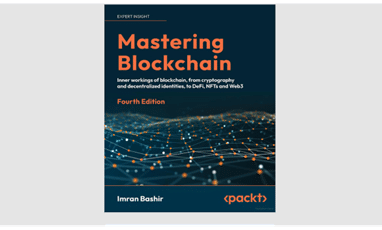In the age of decentralized technologies, the demand for skilled DApp (Decentralized Application) developers has surged. These applications, running on blockchain and peer-to-peer networks, offer a range of advantages, including increased security, transparency, and resistance to censorship. If you’re aiming to make your mark in this exciting domain, here’s a roadmap to becoming a proficient dApp developer.
What is a DApp Developer?
Before we dive into the world of DApp development, let’s establish a foundational understanding. A DApp developer, often referred to as a full-stack blockchain developer, is a professional responsible for both front-end and back-end development of decentralized applications. These applications run on a peer-to-peer network, instead of centralized servers. A DApp developer crafts smart contracts, builds user interfaces, and ensures seamless integration between the two.
Benefits of Becoming a DApp Developer
- Upskilling: As technology evolves, having skills that are on the cutting edge, like DApp development, can set you apart in the tech industry.
- Future-Proofing: Blockchain and decentralized technologies are touted as the future of secure, transparent digital solutions. Learning this now positions you for future opportunities.
- Salary Projection: As of 2021, a blockchain developer’s average salary ranged between $150,000 to $175,000 annually, according to Crypto Currency News. However, this can vary based on experience, location, and company size.
- Job Outlook: A report from LinkedIn mentioned that blockchain development skills, which include DApp development, were among the top in-demand skills. The demand is projected to continue growing as more industries adopt blockchain technologies.
You can read our full report on the case to become a DApp developer here
So what does it take to become a proficient dApp developer ?
1. Understand the basics of Blockchain
Before diving into dApp development, it’s imperative to have a strong grasp of blockchain fundamentals. Learn about:
- How blocks are created and added to the chain
- Consensus mechanisms like Proof of Work and Proof of Stake
- Cryptographic hashing
- Public and private keys
Recommended Resource: “Mastering Blockchain” by Imran Bashir
2. Get Acquainted with Smart Contracts:
At the heart of most DApps lies the smart contract. These self-executing contracts have terms of agreement directly written into lines of code. They ensure trustless transactions, which means parties can transact without trusting each other, only trusting the code.
3. Master the Relevant Programming Languages:
Depending on the blockchain platform you choose, you’ll need to learn specific smart contract languages. Some popular ones include:
- Ethereum: Solidity is the primary language, but Vyper is gaining traction.
- EOS: C++
- Hyperledger Fabric: Go & JavaScript
- Near Protocol: Rust & AssemblyScript
- Cardano: Plutus built from Haskell & Marlowe a DSL
4. Hone in on your Fullstack Developer skills ( FrontEnd and Backend Development )
- dApps aren’t just about the blockchain. They need user-friendly interfaces and sometimes, backend servers:
- Frontend: Familiarize yourself with HTML, CSS, JavaScript, and popular frameworks like React, Vue, and Angular.
- Backend (if needed): Learn about Node.js, databases, and server management.
5. Dive into Popular Libraries & Frameworks
Make your life easier with tools and libraries crafted for DApp development:
- js & ethers.js: Essential for Ethereum dApp development.
- Truffle Suite: An all-in-one dApp development suite.
- Drizzle: For frontend development, especially with React.
6. Prioritize Security:
Security breaches in the blockchain world can lead to irreversible damages. Ensure you’re well-versed in:
- Security patterns and anti-patterns in smart contract development
- Secure code practices
- Regular audits
We can’t over stress the importance of security in blockchain development!
7. Engage with the Community:
Join forums, attend webinars, and participate in hackathons. Engaging with the dApp and broader blockchain community will expose you to real-world challenges and solutions. Platforms like Stack Exchange, Reddit, and GitHub can be treasure troves of information.
8. Continuous Learning & Practice:
The decentralized tech landscape is rapidly evolving. Keep up with the latest trends, tools, and technologies. Build your dApps, no matter how small, to practice and refine your skills.
9. Collaborate on Open-Source Projects:
Working on open-source projects or contributing to them can give you valuable experience. It’s also a great way to get feedback and learn from seasoned developers.
10. Stay Updated on Decentralized Finance (DeFi):
If your interests lean towards financial dApps, immerse yourself in the DeFi world. Understand its principles, benefits, and the latest happenings.
How to excel as a DApp Developer:
Once you have acquired the skills of a DApp developer you need to become and stay proficient. Here are ways to do so
- Continuous Learning: Blockchain technology is ever-evolving. Dedicate time to learn about the latest trends, tools, and best practices.
- Mentorship: If possible, find a mentor in the field who can provide guidance, feedback, and insights from their journey. After you’ve become savvy at DApp Development don’t forget to be available to some mentees!
- Stay Updated on Regulatory Changes: Again, being informed about global and local regulations can help in building compliant and successful DApps.
In Conclusion
Becoming a proficient dApp developer is an exhilarating journey filled with continuous learning. The decentralized future looks promising. With the right skills, continuous learning, and a passion for innovation, you can pave your way to becoming a leading figure in the decentralized future. Happy coding!

